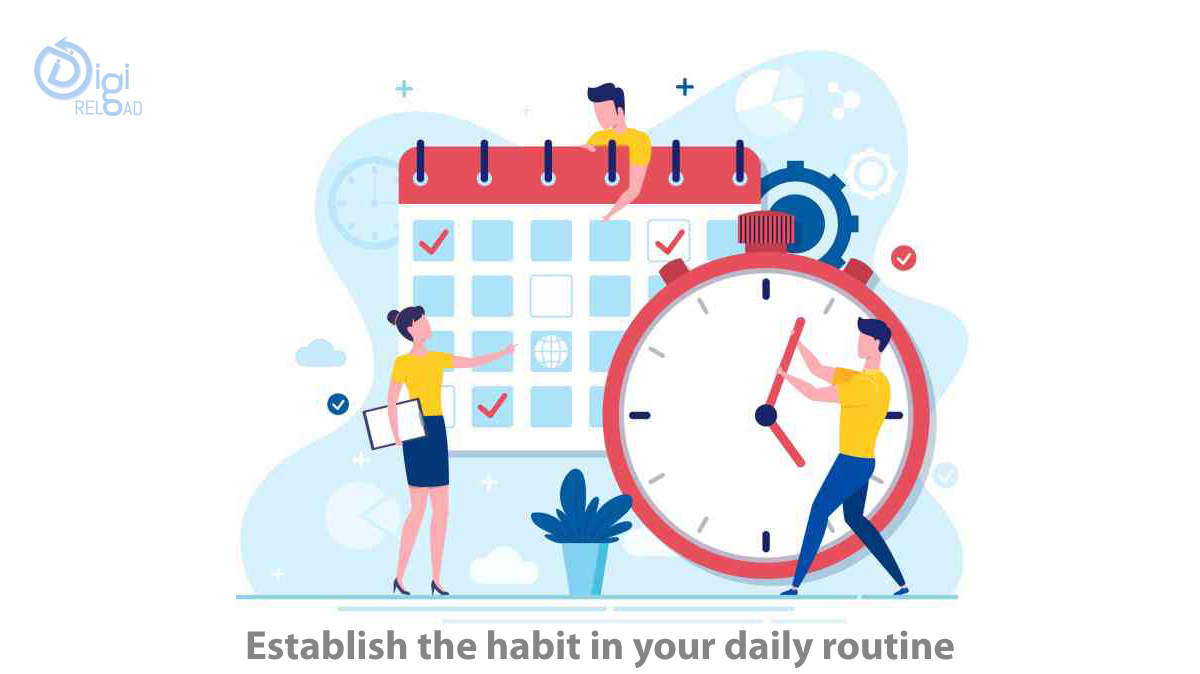Habits define us. It is instilled in our persona & reflects in our character. People around the world want to inculcate habits that make them successful or give them an identity that is appreciated. Below are 7 points which will help you develop a habit & stick to it strictly for your life.
Focus on One New Habit
Focus on one new habit that you want to inculcate & decide what you want from that habit. The important point thing here is to identify a habit you can do all the time, something that will fit into your life and can be completed on a daily basis, even when you don’t feel like it. It can be reading, writing, painting, exercise etc.
Commit for a MINIMUM of 30 days
Some people say it takes 21 days to build a habit, while others claim it takes up to 66 days. The truth is that the length of time really varies from person to person and habit to habit. You’ll find that some habits are easy to build while others require more effort. My advice is to commit to a specific habit for the next 30 days.
Establish the habit in your daily routine
A habit shouldn’t be based upon motivation, fads, or temporary desire. Rather, it should be instilled in your life to the point it becomes habitual. This often means you do not need a sophisticated series of steps—just something you can commit to day in and day out… FOREVER.
What you want to do is to commit to a very small habit change and take baby steps as you build on it.
Take Baby Steps
The key to habit developing is to make micro-commitments and focus on small wins.
The danger of relying on motivation alone to form a new habit is that you don’t have a backup plan for when you’re not in the mood. Really, the only way to make a habit stick is to turn it into automatic behaviour. You can do this by taking baby steps and creating a low level of commitment.
Make a Plan for Obstacles
Time, Pain, Weather, Space, Costs, Self-consciousness contributed to a number of obstacles. But when you know in advance what your obstacles are, you can take preventative action to overcome them.
Prepare and anticipate that these obstacles will come. Then, you won’t be blindsided by them. This goes back to the “If-Then Planning” we discussed. Some examples of these powerful “If-Then” statements include:
“If I check the weather and it’s raining, then I will work out at the gym instead.”
“If I don’t have time for my project at the end of the day, I will start to wake up 30 minutes and work on it before anything else.”
“If I have a really bad day at work and don’t feel like working out, I will still walk briskly for at least 15 minutes.”
Create Accountability for Your Habit
Track your efforts and make public declarations about your new habit. According to the lessons learned from the Hawthorne effect, you’re more likely to follow through with a commitment when you’re being observed by others. To stick with this new routine, you should let others know about your efforts and goals. Post updates on social media accounts, use apps like Chains and Coach.me to track your progress, work with an accountability partner, or post regular updates to an online community related to the habit. Do whatever it takes to get reinforcement from others in support of your new routine.
Reward Yourself
A new habit doesn’t have to be boring. Focus on building a reward system into the process so you can take time to celebrate the successful completion of your goals. The reward you pick is up to you, but it’s important to celebrate those big moments along the way.
Keep in mind, a reward doesn’t have to break the bank. You could check out a new movie, enjoy a night out with your significant other, or simply do something you love.
As you can see, it’s not that hard to form a new habit. The secret is to relate to an important goal, make a commitment to work at it on a daily basis and use a series of micro-commitments to increase the likelihood of success.




















.png)